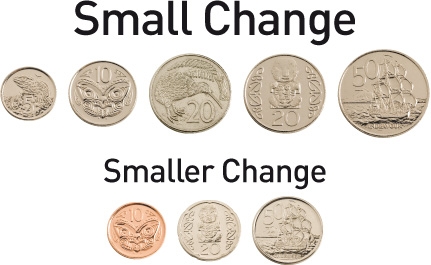
![]() There's been a lot of discussion about the inflationary effects of the GST increase since the budget, but everyone is looking in the wrong direction.
There's been a lot of discussion about the inflationary effects of the GST increase since the budget, but everyone is looking in the wrong direction.
Everyone is talking about consumers and interest rates, but are ignoring savers who are taking the biggest hit. Labour is pointing to the combined effect of the GST hike, increased power and petrol prices from the Emissions Trading Scheme, and increased ACC levies as a sign the government is increasing taxes and making consumers poorer.
Even the Treasury is forecasting annual inflation will hit 5.9% in 2011. That is almost triple the middle of the Reserve Bank's target range of 1-3%.
The government responds that it has structured the income tax cuts and various top-ups to ensure both middle and lower income earners are not disadvantaged by the GST increase. The government even argues that real after tax incomes will rise between 0.5% to 1% once tax increases on property investors and foreign-controlled companies are spread around. The government also rightly points out that its moves to reform taxation will eventually improve growth rates and incomes. This is less certain, but a fair enough argument on the income side of the debate.
Interest rates are also unlikely to be affected directly by this surge in inflation. Reserve Bank Governor Alan Bollard has already pointed to the clauses in the Policy Targets Agreement which allow him to 'look through' the jump as a 'one-off' increase, as long as it doesn't lead to any longer term increase in inflationary expectations. There is some uncertainty around this idea that the jump through 2010 and 2011 will be ignored.
The Reserve Bank's own survey last week of businesses' expectations of inflation show a spike up to 2.9% in the June quarter from 2.1% in the previous quarter.
But everyone is focusing on these two pieces of fallout from the inflation spike: consumer purchasing power and interest rates. They are ignoring what is potentially the most damaging impact that will not be compensated for. New Zealanders had NZ$153 billion worth of savings in term deposits, debentures, bonds and savings accounts at the end of December, Reserve Bank figures show. Inflation erodes the purchasing power of all of these assets.
Over the next year the expected inflation surge will reduce the real purchasing power of those savings by around NZ$9 billion. This dwarfs the potential compensation the government will provide for consumers, taxpayers and beneficiaries. So why is it being ignored? Savers will not be compensated for this one off erosion of this purchasing power. The irony is they will actually be taxed extra for the 'privilege' of earning interest on their savings.
One of the great injustices of our tax system is that the government takes tax on the inflation component of interest earnings on savings.
For example, anyone earning 5% of their savings is being taxed on the inflation component of these returns, even though it is eroding the real value of these savings. Term deposit rates are unlikely to rise much to compensate for the boost in inflation, thanks to Alan Bollard's move to 'look through' the spike. In the coming year savers will receive interest returns that are far less than inflation and will have to pay tax on the interest they do receive.
Many economists have argued that the government should exempt tax on this inflation component of interest payments. Australia has just announced a 50% tax break on the first A$1,000 of interest earnings from savings in term deposits. New Zealand should do the same, at least.
That would go some way to encourage savings and compensate savers for this one-off permanent reduction in their wealth.
The final irony is that one of the aims of the budget was to encourage savings and reduce the incentives to invest in other assets where tax is not paid on capital gains, such as property. This inflation hit does just the opposite.

We welcome your comments below. If you are not already registered, please register to comment
Remember we welcome robust, respectful and insightful debate. We don't welcome abusive or defamatory comments and will de-register those repeatedly making such comments. Our current comment policy is here.